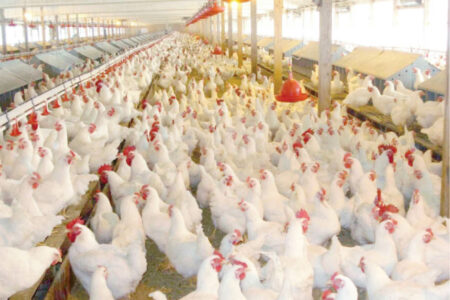Are you preparing to launch your poultry farm? If so, you should think through every facet of the business before starting it. You must proceed carefully at every step, from assembling some fundamental equipment to rearing the poultry and selling your enterprise, Entrepreneurng report.
There are various sorts of poultry farming, including raising ducks, chickens, quails, turkeys, emus, broilers, etc. However, the fundamental ideas and methods remain the same. The five fundamental steps you must take to launch a successful poultry farming business in Nigeria are listed below:
1. Decide whatever kind of poultry bird to raise
It’s critical to have a firm understanding of the breeds of fowl to raise before starting your poultry farming business (most importantly, poultry breeds that lay a lot of eggs). Aside from chickens raised locally, there are currently two main breeds that are popular among poultry farmers in Nigeria which is the broilers and layers. Although there is also a breed called cockerels.
2. Choose an appropriate farm location or site.
The location of your poultry farm is crucial to the success of your enterprise. You need a farm location to start raising poultry. The number of birds you plan to raise should be taken into account while determining the size of the poultry farmland. It’s usually advisable to start small if you have adequate areas in your backyard and you can’t afford to move to a new location. You can start with what you have, but as soon as you can afford it, make getting a better farm a top priority.
A decent location for a chicken farm should be away from the noise and bustle of the city. The environment should be serene and devoid of pollutants. There must be adjacent sources of sufficient, pristine, and fresh drinking water on the property. The area must also be devoid of predators and fowl enemies like foxes and leopards. To facilitate the delivery of farm products when they are ready for sale, the location must be easily accessible from major roadways.
3. Make suitable bird housing and shelter available
After acquiring a farm site, housing is a crucial consideration in the raising of poultry. Your commercial poultry birds’ protection and survival depend on having a suitable poultry home. The housing system you select entirely depends on the breeds of chicken and the farming technique. Many sorts of chicken growing techniques require different housing designs.
The future home must be roomy enough to allow the birds to run about freely. To lessen the chance of flooding, shelters must be raised sufficiently. The area needs to be big enough to let the birds fly about freely. The shelter also needs to be well-ventilated and shielded from direct sunlight.
4. Make provisions for feeding and treating the chicken birds
High-quality, nutrient-dense feed is a must for commercial chicken production. The bird is always healthy and extremely productive thanks to the quality and orderly feeding. Because contaminated feed might infect birds, the feed must always be kept dry and clean. The secret to success in the poultry farming industry is to provide your birds with fresh, wholesome food. Water won’t be an issue for your birds. Their ability to grow can be hindered by insufficient water availability.
Several diseases of chickens can be avoided with the right treatment and vaccinations. You need a veterinarian who is available to check on your birds whenever necessary if you are a commercial poultry farmer.
5. Sales & Marketing Strategy
Every poultry farmer wants to have successful sales following each crop since poultry farming is a lucrative industry. Thus, you must focus on the sales and marketing aspects of your company. Avoid focusing on the operational side of your organization to the point where you neglect the sales side.
But you can use the following suggestions to market and sell your chicken: go online, sell to hotels and restaurants, advertise your goods, hire marketers, deliver to customers’ homes, etc.
Conclusion
You should determine the type of farm you want to start before beginning a poultry operation. Then, find out how much everything will cost to get started, and adjust your budget accordingly. In Nigeria, a small-scale poultry enterprise can be launched for less than N200,000.


